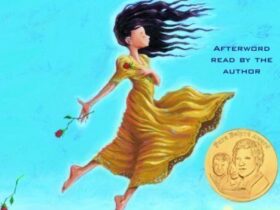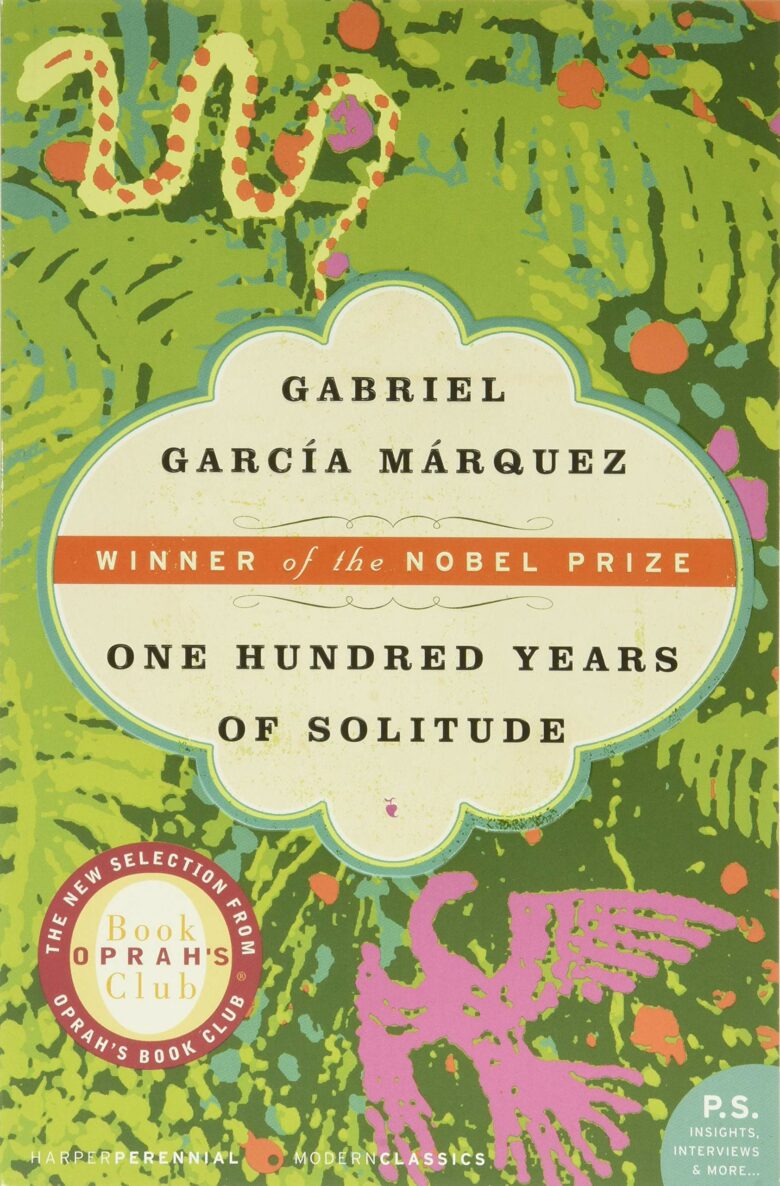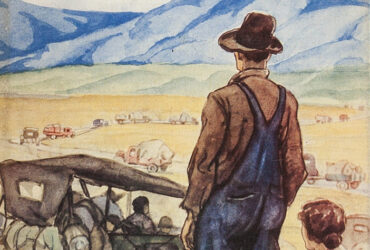” . . . the unfathomable solitude that separated and united them at the same time.”
pg. 402
Márquez’s famous novel, One Hundred Years of Solitude, took me weeks to finish. Paragraphs wrap themselves over multiple pages, characters fall in and out of sentences that are propelled through the town of Macondo, and humanity becomes cracked and dry and meaningless in the reading of this novel. My mom asked me if I hated the book because it took so much time to read, and while I do hate the book, frustratingly, because it took me so much time to read, I love it. A paradox.
The margins of my book are filled with colorful exclamations of my horror and sadness at the treatment, descriptions, and neglect of women in this novel. Every female character is introduced through a male Buendía’s sexual desire. For example, Pilar Ternera pays Santa Sofia de la Piedad to have sex with Arcadio who is crippled with sexual desire for Pilar Ternera. Pilar Ternera doesn’t want to have sex with Arcadio because she is secretly Arcadio’s mother. The situation is appalling. “She had that rare virtue of never existing completely except at the opportune moment” (123) the narrator says about Santa Sofia. Unfortunately, every female character in this novel has that rare virtue, and the “opportune moment” is usually sexual.
However, Ursula, Amaranta, Rebecca, Fernanda, Santa Sofia de la Piedad, Pilar Ternera, Remedios, and all of the other women hold significant space in the novel. Ursula, Amaranta, and Rebecca outlive all of the men, becoming witnesses of the cyclical motion of life. Ursula “discovered that every member of the family, without realizing it, repeated the same path every day, the same actions, and almost repeated the same words at the same hour” (265). The female characters are not coddled or held up as something other than human. They all make prophecies and incorrect predictions. They affect the people around them with their choices and behaviors. The females in this novel are bizarre, powerful, and terrified. They would be fantastic characters for further research.
“It was then that he decided that no human being, not even Ursula, could come closer to him than ten feet.” The words and theme of solitude are embedded within the text like copper veins in a mountainside. Even the violent act of mining reflects the violence, destruction, and carelessness of war and family drama addressed in the novel. Relatably, in the novel, human solitude is described as being scattered about, multiplied, miserable, lost. Some characters are thrust into solitude through despair, death, or nature. And some choose it. Solitude is described as a shell, a pact, and a privilege. A space of desert, quiet, and melancholy. Solitude is part of being an individual, “she became human in her solitude” (392).




























Leave a Reply